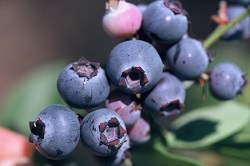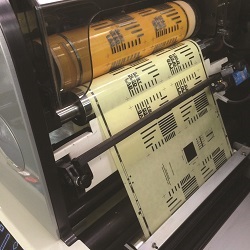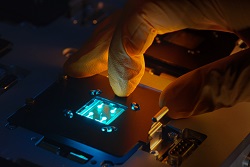Picking the benefits from the berries
We already know that berries are good for our health and overall wellbeing, with many also offering important applications in the pharmaceutical and food industries. However, many researchers believe this is just the tip of the iceberg, and that the true potential of berries is far from being maximised. Berries are full of complex molecules and compounds, with only a fraction offering actual health benefits. In other words, you could end up eating enough berries without actually making yourself any healthier. To save everyone a potential bellyache, researchers with the EU-funded BACHBERRY project developed a systematic approach to identify and produce the berry molecules that offer the most health benefits. According to researchers, a number of these molecules show promise for the prevention of such diseases as Huntington’s and Alzheimer’s. Furthermore, the innovative BACHBERRY methods provide European bio-industries with more certainty and cost-effectiveness in their efforts to incorporate the hidden benefits of berries into their pharmaceutical and food products. ‘It’s cheaper and easier to identify these desired compounds and produce them in a lab than it is to grow hundreds of berry types in a field,’ says project coordinator Alexey Dudnik. ‘Using a bioreactor removes such challenges as seasonal availability and allows us to use simpler and more eco-friendly extraction procedures.’ The berry pipeline BACHBERRY has built a pipeline for discovering and sustainably producing new phenolic compounds that can be used in such sectors as nutrition, medicine, food and cosmetics. To create this pipeline, the project started by gathering berry species from around the world – 113 in all coming from as far as Russia, Chile and China. These species were then screened, with the 28 berries showing the most promise being shortlisted. ‘These berries were selected because they had the greatest diversity of bioactive phenolic compounds, or hydrocarbon molecules produced by plants and microorganisms, that can play vital roles in fighting disease or serving as pigments,’ adds Dudnik. Next, extracts from the berries were tested using yeasts that mimic human diseases, with several showing positive results towards fighting against Alzheimer’s, Huntington’s, ALS, Type II diabetes and cancer. Others exhibited anti-microbial activity. ‘For example, we worked on the bacterial production of fisetin, which is known to reduce the risk of Alzheimer’s disease and ameliorate the effects of diabetes in mice,’ says Dudnik. ‘Although it is derived from strawberries, you would need to eat 37 strawberries a day to get an adequate dose!’ Industrialising berry benefits The final step was to use bioactive phenolic compounds to design and construct bacterial cell factories for producing selected high-purity, high-value phenolic compounds in bioreactors – a key element for the eventual uptake by industry. ‘Whilst the discovery part was running, we decided to focus on the production of resveratrol, a known model phenolic compound found in blueberries, raspberries and in grapes and wine,’ explains Dudnik. ‘The compound itself is a powerful antioxidant, plus there are multiple studies linking regular red wine consumption to the ‘French paradox’ – the tentative observation that overall the French suffer less heart disease despite consuming high-fat diets. Once this was achieved, we used this knowledge to produce one of the novel bioactives identified within the project.’ Thanks to BACHBERRY, industry can now identify new, high-value bioactive compounds capable of boosting new products across a range of sectors. ‘We’ve developed new and innovative tools to tap the full potential of phenolics in berries, as well as to improve microbial production of these compounds on a large scale,’ concludes Dudnik. ‘We successfully overcame real scientific and technological barriers to develop an efficient pipeline that industry can adapt to systematically go from bioprospecting through to bio-production.’







